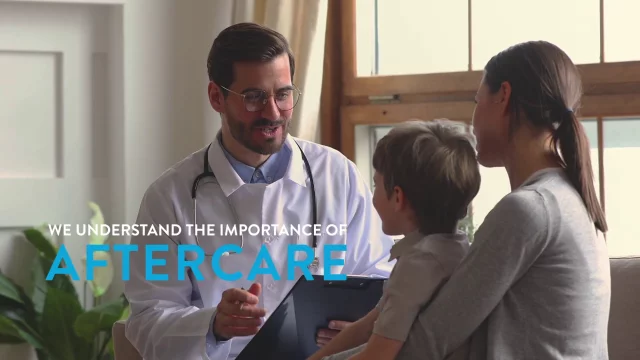Global point of care
The importance of pediatric lipid testing in the diagnosis and treatment of familial hypercholesterolemia

Summary
Familial hypercholesterolemia (FH) is a common genetic disorder leading to elevated low density lipoprotein cholesterol (LDL-C) from birth.1 Globally out of 220 children, approximately 1 child has FH, and therefore an increased risk to suffer from early cardiovascular disease, or even death.2 One in ten premature myocardial infarctions (MI) is caused by FH.2
Yet 90% of the 1.3 million Americans with FH are unaware of their condition, leading to premature atherosclerosis cardiovascular disease (ASCVD).1,2
The Centers for Disease Control and Prevention (CDC) defines FH as Tier 1 genomic application i.e. having a significant potential for positive impact on public health based on available evidenced-based guidelines and recommendations.3
Yet implementation of evidenced based practices (EBP) for FH screening is suboptimal for many reasons, ranging from lack of FH awareness among both healthcare providers and the public, to the absence of a structured approach to screening, diagnosis and treatment.4,5,6
And few health systems have adopted the 2011 recommendations of the National Heart Lung Blood Institute (NHLBI) and the American Academy of Pediatrics (AAP) to conduct universal screening of all children between the ages of 9-11.7
Pediatricians often note that they do not routinely send children for laboratory tests and also state that they feel inadequately prepared to treat elevated LDL-C levels in children.6,8
IN addition to FH education pediatricians will benefit from point-of-care (POC) desktop analyzers for use in their offices.
Learning Objectives
- Recognize the frequency of familial hypercholesterolemia (FH) in the general population. 1
- Understand the specific generics of FH and the benefits of early treatment of hypercholesterolemia associated with this generic disorder.1,9
- Recognize that 50% of the first-degree relatives of a person with FH will also have FH. 1,3
- Understand the role of cascade screening in the diagnosis of FH.1,3,4
- Recognize the barriers to implementing universal pediatric lipid screening. 4,5,6,8
- Recognize the value of point-of-care lipid testing in pediatric offices – allowing parents and children to avoid a trip to a laboratory.
References
- McGowan MP, Hosseini Dehkordi SH, Moriarty PM, Duell PB. Diagnosis and Treatment of Heterozygous Familial Hypercholesterolemia. J Am Heart Assoc 2019;8:e013225.
- Singh A, Gupta A, Collins BL, et al. Familial hypercholesterolemia among young adults with myocardial infarction. J Am Coll Cardiol. 2019;73(19):2439-2450.
- CDC. Genomics & Precision Health. Tier 1 Genomic Application Toolkit for Public Health Departments: https://www.cdc.gov/genomics/implementation/toolkit/index.htm accessed January 31, 2021.
- Knowles JW, Rader DJ, Khoury MJ. Cascade Screening for Familial Hypercholesterolemia and the Use of Genetic Testing. JAMA 2017;318:381-382
- Lee C, Rivera-Valerio M, Bangash H, Prokop L, Kullo I. New case detection by cascade testing in familial hypercholesterolemia: A systematic review of the literature. Circ Genom Precis Med. 2019;12:e002723.
- Ferranti SD de et al. Cholesterol Screening and Treatment Practices and Preferences: A Survey of United States Pediatricians. J Pediatr 2017;185:99-105
- Expert Panal on Integrated Guidelines for Cardiovascular Health and Risk Reduction in Children and Adolescents, National Heart, Lung, and Blood Institute. Expert panel on integrated guidelines for cardiovascular health and risk reduction in children and adolescents: summary report. Pediatrics.2011;128(suppl 5):S213-S256
- Dixon DB, Kornblum AP, Steffen LM, Zhou X, Steinberger J. Implementation of lipid screening guidelines in children by primary pediatric providers. J Pediatr 2014;164:572-6.
- Luirink IK, Wiegman A, Kusters DM et al. 20-year follow-up of statins in children with familial hypercholesterolemia. N Engl J Med. 2019;381:1547-56.
Presenter Biography
Mary McGowan, MD
Assistant Professor of Medicine at Geisel School of Medicine at Dartmouth; Co-Director Lipid Clinic at Darthmouth Hitchcock Heart & Vascular Center
USA
Lisa Khalafi
FH Advocate & Patient
USA
Who Should Watch
Endocrinologists, Mental Health Practitioners, Psychiatrists, Cardiologists, Primary Care Physicians, Nephrologists, Healthcare professionals, Clinicians, POC coordinators, Physicians, General practitioners



